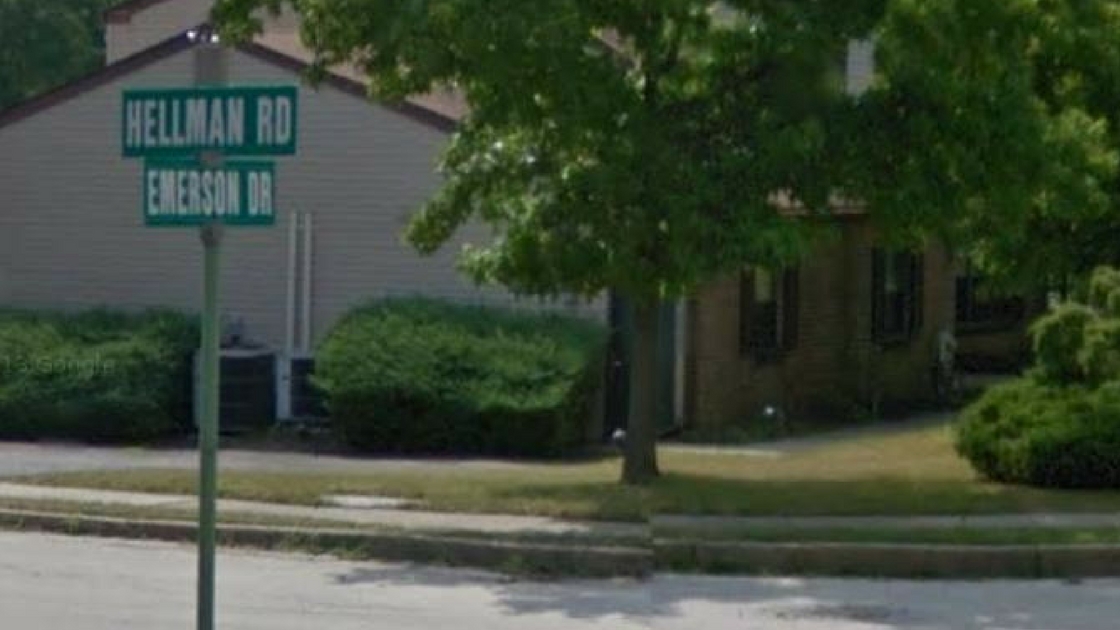The streets in Joshua Knoll are named after prominent writers, including poets, novelists, and dramatists. This neighborhood of Freedom Valley is named after a small hill off of Joshua Road. The housing development is located along that roadway as well as Flourtown Road in the Lafayette Hill section of Whitemarsh Township. Planned in 1977, construction was underway in 1978. Prices ranged from $58,240 for the “Ross”, a specific style of home, to $69,500 for a larger house in 1980. Many of the housing lots are in the range of one-third of an acre.
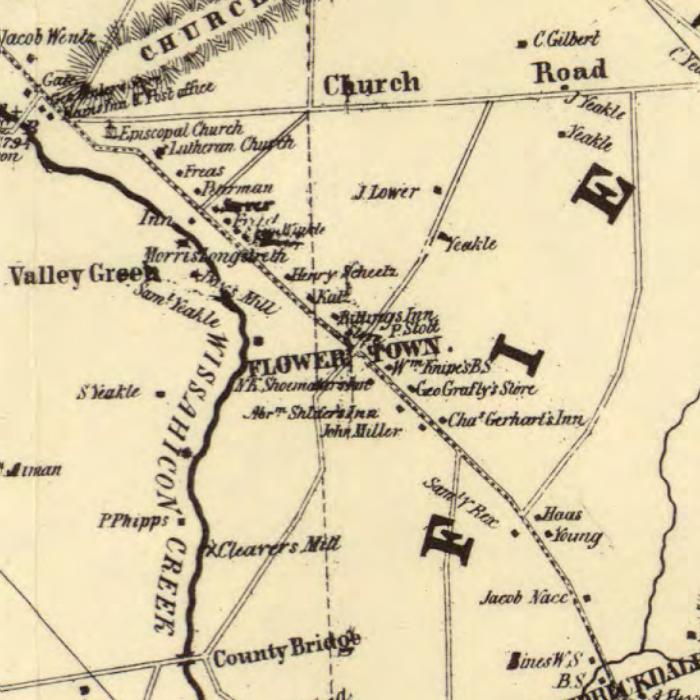
Flourtown Road takes its name from the Village of Flourtown, located chiefly in Springfield Township. This roadway travels from Butler Pike in Plymouth Meeting to Stenton Avenue. Other roadways with different names today directly connect Flourtown Road with the Village of Flourtown. Portions of both Springfield Township and Whitemarsh Township are included in the Flourtown Postal District.
According to Bean’s History of Montgomery County, Flourtown itself was named after a flour mill used by grain farmers. Referencing the Pennsylvania Archives, the book indicates that the name for the village was is use as early as 1781. A post office was established in Flourtown prior to 1810.
On occasion, some of the early maps of this area showed the name of the village spelled as “Flowertown”. The illustration above is from a map produced in 1848. Flowertown is seen as centered near what is today the intersection of Bethlehem Pike and Mill Road.
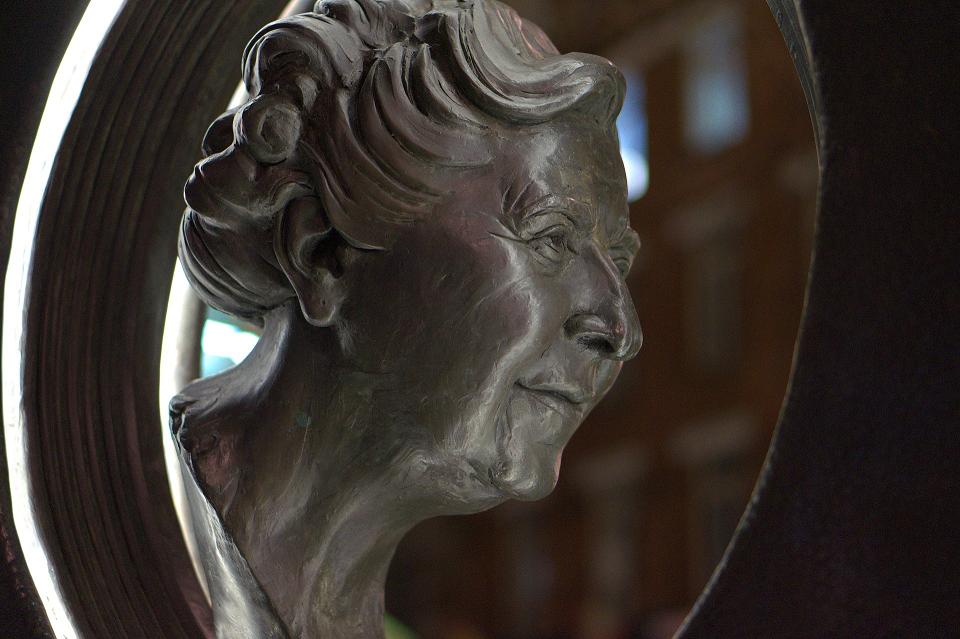
Christie Circle takes its name from Dame Agatha Christie, the noted mystery writer. She was born in Devon, England, in 1890. The initial European settlers of Plymouth Meeting also came from Devon – Plymouth in Devonshire – England.
According to Agatha Christie Limited, the entity established by Ms. Christie to manage her literary and media works since 1955, two billion copies of Ms. Christie’s works have been published in various languages throughout the world. She wrote Murder on the Orient Express and The Mousetrap.
In recognition of her talent, she was awarded the first The Grand Master Award by the Mystery Writers of America in 1955. The Tucson Daily Citizen reported that Queen Elizabeth II named Ms. Christie a Dame Commander of the British Empire on January 1, 1971. Ms. Christie died in 1976.
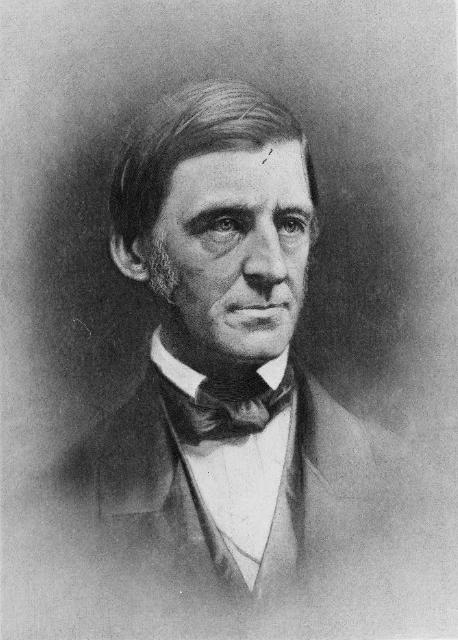
Emerson Drive is named after Ralph Waldo Emerson, a noted poet and essayist. He was born in Boston in 1803, and died in 1882. At the age of 18, he graduated from what is today Harvard University.
Among his essays were Nature and Self-Reliance.
An interesting aspect of the words used by Mr. Emerson was noted on January 26, 2011, in a report by the Smithsonian Institution – The National Museum of American History:
“Legend has it that that Ralph Waldo Emerson once said, ‘If you build a better mousetrap, the world will beat a path to your door.’ The Sage of Concord actually said, ‘If a man has good corn or wood, or boards, or pigs to sell, or can make better chairs or knives, crucibles or church organs, than anybody else, you will find a broad hard-beaten road to his house, though it be in the woods.’ Although Emerson was misquoted, his idea is powerful and enduring—so powerful, in fact, that the U.S. Patent Office has issued thousands of patents for mousetraps, more than any other machine.”
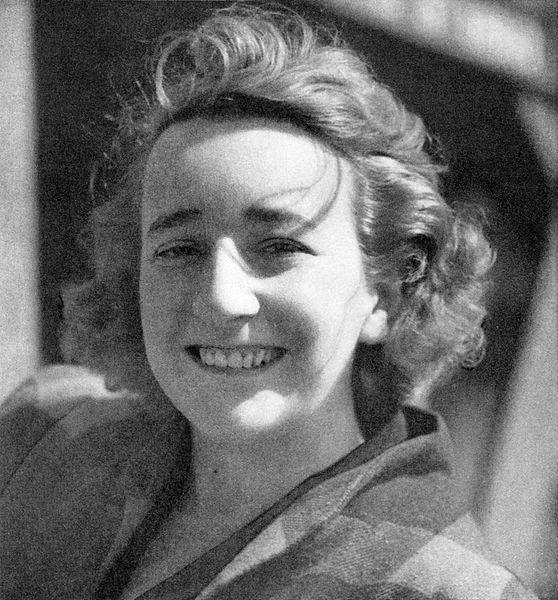
Hellman Road is named after Lillian Hellman. She was born in 1905 in New Orleans; she died in 1984. Prolific as a screenwriter and playwright, Ms. Hellman wrote such plays as The Children’s Hour and The Little Foxes.
She was among a number of individuals blacklisted in Hollywood because of her reported ties to communism. Among others blacklisted in the mid-20th Century – denied the ability to appear in movies or through broadcasting – were such individuals as Ms. Lena Horne, Mr. Arthur Miller, and Mr. Leonard Bernstein.
Ms. Hellman utilized her Constitutional rights as she appeared before the House Un-American Activities Committee in the United States Congress. The committee was established to determine which Americans were disloyal to the country and engaged in subversive activities detrimental to the nation. The Cold War with the Soviet Union had impact through many areas of the United States.
On May 21, 1952, The Holland Evening Sentinel reported that Ms. Hellman told the House Un-American Activities Committee that “she is not a communist.” The Lincoln Journal Star reported on the same day that Ms. Hellman said she “is not a member of the Communist Party and hasn’t been one for two years.” The News Journal of Wilmington reported, also on the same day, that “she refused to testify on her associations prior to that time.”
According to a news article in The Tampa Bay Times on January 24, 1957, the Committee issued a “Handbook for Americans” in 1956. This report, officially titled as The Communist Party of the United States of America: What It Is, How It Works (A Handbook for Americans), was issued by the United States Senate. Among those in the “List of Most Typical Sponsors of Front Organizations” was Ms. Hellman. Others included such individuals as Dr. Linus Pauling and Mr. Paul Robeson. Dr. Pauling was awarded the Nobel Prize for Chemistry in 1954, and in 1962, he was awarded the Nobel Peace Prize. Mr. Robeson was an outspoken advocate for civil rights for Americans; a high school is named in his honor in Philadelphia.
These lists served as a mechanism for economic boycotts. Prior to 1949, Ms. Hellman had written a number of screenplays for Hollywood movie studios. Ms. Hellman did not reportedly again work in Hollywood until 1966.
In Part Two, we’ll detail other streets in the Joshua Knoll neighborhood.
The top photo is courtesy of Google, 2012.
The second image displayed in this news article is a portion of a map from 1848, courtesy of the Commonwealth of Pennsylvania Historical and Museum Commission.
The photo of Ralph Waldo Emerson is courtesy of the Library of Congress. The image is circa 1884.
Do you have questions about local history? A street name? A building?
Your questions may be used in a future news article.
Contact Richard McDonough at freedomvalleychronicles@gmail.com.
© 2018 Richard McDonough

